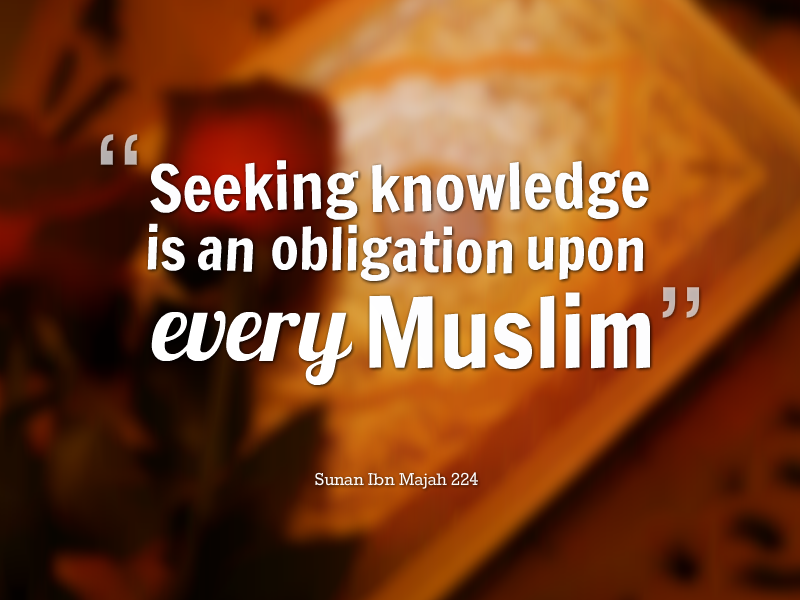TYPES OF KNOWLEDGE IN ISLAM
The knowledge is categorized by Muslim scholars into two main categories:
Obligatory Knowledge (fardh ‘ayn)
A Muslim has an obligation to learn about their religion. The knowlege which is obligatory is the knowledge of the fundamentals of Islamic beliefs.It is a duty for every Muslim to seek this knowledge.Thsi knowlege revolves around the Islamic faith, acts of worship, and the necessary transactions in lives of a Muslim human being.
Optional Knowledge (fardh kifayah)
The optional knowlege is not obligatory, therefore it is not a religious duty of every man and woman to gain and strive for optional knowlege. The importance of optional knowledge is however strong, the other Muslims are exempted from this knowledge if a group of individuals in the community undertake to acquire this knowledge. There will be no responsibility on the whole community to acquire this kind of knowledge then. Such knowledge relates to knowing in depth about Islamic law and other basic sciences, industries and professions. All the professionals that are about the welfare of society are included in optional knowledge.
Optional Knowlege is worldly knowlege which covers the parts of Islamic knowlege as well. The former is called al-‘Ilm al-Shar’i al Kifa’i (optional Islamic knowledge), while the latter is called al-Ilm al-dunyawi (worldly knowledge).
Religious sciences:
The religious sceinces cover the Islam and Shariah in detail, the branches of Islam and tafsir (the exegeses of Quran) are included in it. Fiqh and Hadith sciences is also an essential part of it. Studying about Islamic history is also the optional religous sciences knowledge.
There must be some pre-requisites to study these types of subjects, for example, if someone wants to fully grasp the knowledge of tafsir, then he or she needs Arabic grammar, Arabic literature, and other linguistic skills. Similarly Hadith sciences need the science of criticism
The natural and applied sciences:
The natural and applied sciences are related to industry and professions that are vital for the welfare of community and ordinary people. Some of the common examples in the modern world are engineering; agriculture, fisheries, food sciences, etc.
Duty of Muslim Leaders
It is the religious and moral duty of Muslim leaders to lead their community well. For that, they must ensure that number of scholars and qualified professionals in the society are working well in every fields of optional knowledge needed by the community. The society needs enough educators, scientists, engineers and administrators to make the society better.
If the members of Muslim leadership fail to progress the nation in these fields of optional knowledge, then they are subject to the wrath of Allah and will face the blame for the sins of their shortcomings.
MUSLIMS SHOULD TEACH WHAT THEY LEARN
Allah (Most Exalted is He) says:
“O you who believe! Ward off from yourselves and your families a Fire (Hell) whose fuel is men and stones… (Qur’an, Al-Tahrim 66:6)
The only way to save one’s family members from Hell is to teach them the Islamic obligations and instruct them to observe them consistently.
REFERENCE LINK http://www.missionislam.com/knowledge/shouldknow.htm




